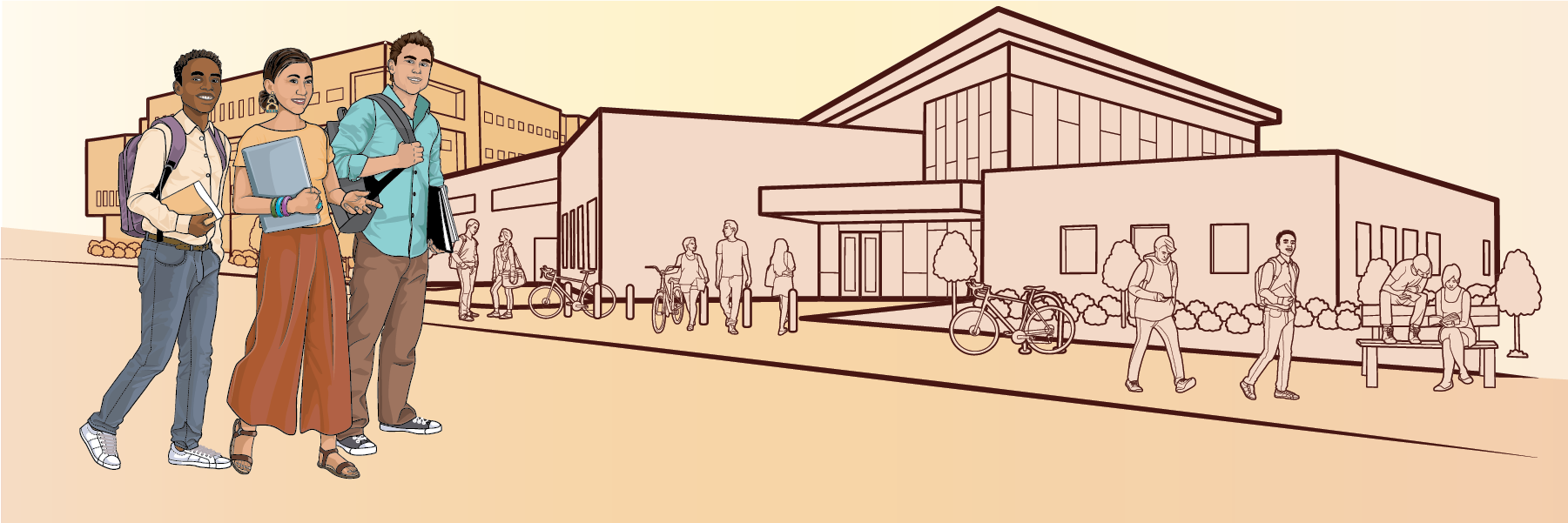Pasadena City College:
Student Success Coaches
The Beginning
To develop a first-year experience, PCC introduced success coaches as part of its “guided entry” process, beginning in 2011 with four. In 2012, they added a counseling faculty lead. The current lead, Emily Bangham, describes her role as “making sure the curriculum is set up for coaching, and the relationship between counseling and coaching is set, so there’s an easy flow of information and the differentiation is clear.” As registration in Pasadena’s Pathways program increased, PCC added coaches and by 2019 there were 41. Some serve specific populations (veterans, foster youth, athletes, international students, etc.) so funding for them is sourced through the variety of programs they serve. For example, STEM coaches are funded through an HCI STEM grant, and others might be funded through SSSP or a Title V grant (for coaching second- and third-year students).
Implementation
Training:
The coaches, mostly counseling graduate students from nearby universities, receive training before and during the academic year in appreciative advising (modified slightly for coaching), metacognition, and other skills, as well as professional development from faculty and outside professionals. They also learn what they can and cannot provide. “Coaches don’t tell you what classes to take or give counseling sessions,” says Taleen Seropian, a counselor. Their role is to help connect students with resources, prepare them to use their time well with counselors, or explain why it might be a good idea to visit a professor during office hours.
Connecting and Staying Connected:
First-year students in PCC’s Pathways program meet their success coaches during Summer Jam. To stay in the program, they are required to meet with their coaches once each semester, but on average them meet with them three times during their first semester. Coaches track students’ compliance with Pathways requirements using Starfish; they check in and follow up with students and serve as guides to social and cultural experiences on campus. They also help organize career and transfer events. Their caseloads range from 150 to 180 students.
Student Experience
“Coaching is always one of the (most highly rated) parts of students’ experiences with Pathways…. They really value that component.”
Being able to interact with a coach who is further along the educational path and can relate to what they are going through as they provide guidance encourages entering first-year students. With an accessible ally and model of success to help them navigate campus and program requirements, students receive just-in-time support starting with a “guided entry,” throughout their time in school, and then in a “guided exit” to transfer or a career.
Early Outcomes
Pathways students at PCC are in a better position to complete transfer-level math and English in their first year and to achieve transfer-directed status.
48% of Pathways students achieved transfer-prepared status compared to 32% of students not in Pathways, a difference of 16 percentage points.
Approximately 31 % of Latinx students in Pathways achieved transfer-prepared status compared to 22% of Latinx students not in Pathways, a difference of 9% points
In a study of 2015-2016 cohorts, persistence rates (defined as continued enrollment for three consecutive terms) for Pathways students were 7% higher than for non-Pathways students.
Another positive outcome: Many success coaches return to serve as adjunct counseling faculty at PCC. They already are familiar with the student population and have experience with programs, requirements, processes, career communities, and resources.

